|
Books Should Be Free Loyal Books Free Public Domain Audiobooks & eBook Downloads |
|
|
Books Should Be Free Loyal Books Free Public Domain Audiobooks & eBook Downloads |
|
Plays |
|---|
|
Book type:
Sort by:
View by:
|
By: David Belasco (1853-1931) | |
|---|---|
 Return of Peter Grimm
Return of Peter Grimm
| |
By: Edmund John Eyre (1767-1816) | |
|---|---|
 Lady of the Lake
Lady of the Lake
At the request of Mr. Siddons, Manager and Patentee of the Theatre Royal, Edinburgh, the following Performance was composed. I am very sensible that Mr. Scott’s Poem of “The Lady of the Lake” afforded material for a much superior Drama than the one here presented to the public; but as Mr. Siddons, in all his correspondence with me on the subject, urged expedition, I was more attentive to the interest of a Friend than to the fame of an Author; and the whole piece was arranged, written, and copied in the short space of ten days... | |
By: Edward Sheldon (1886-1946) | |
|---|---|
 Boss
Boss
The Boss centers on the relationship between Michael Regan, an Irish-American businessman, and Emily Griswold, an outspoken American girl bent on saving her father's business. Set during a time when unions fought for wages and bosses fought for more stake in their company, the play's relevance strikes at the heart of economic issues and hardships in modern day America. | |
By: Elizabeth Barrett Browning (1806-1861) | |
|---|---|
 A Drama of Exile
A Drama of Exile
In writing her ‘Drama of Exile’, Barrett’s subject was ‘the new and strange experience of the fallen humanity, as it went forth from Paradise into the wilderness’. The bizarre, lyrical scenes that follow powerfully describe the grief and guilt of Eve, the sorrowful pride of Lucifer, and the redeeming power of love. | |
By: Elizabeth Cary (1585-1639) | |
|---|---|
 Tragedy of Mariam
Tragedy of Mariam
The Tragedy of Mariam (1613) is the first original drama written in English by a woman. Elizabeth Cary drew on Jewish histories by Josephus to create a closet drama (written to be read, rather than performed live) about Mariam, the second wife of Herod the Great. At the beginning of the play, Mariam believes that Herod has been killed by Octavius, and struggles with how to respond. On the one hand, she is relieved, as she is angry with Herod for killing her brother and grandfather. On the other, she knows that he loved her, and she feels caught by her sense of duty as his wife. When Herod unexpectedly returns, Mariam must decide what to do. | |
By: Eugene O'Neill | |
|---|---|
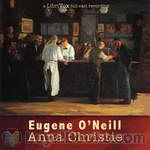 Anna Christie
Anna Christie
Eugene O'Neill's drama Anna Christie was first produced on Broadway in 1921 and received the Pulitzer Prize in 1922. It focuses on three main characters: Chris Christopherson, a Swedish captain of a coal barge and longtime seaman, his daughter Anna, who has grown up separated from her father on a Minnesota farm, and Mat Burke, an Irish stoker who works on steamships. At the beginning of the play Chris and Anna are reunited after fifteen years apart. Anna comes to live on her father's coal barge, but hides the secret of her past from him. When she meets Mat after an accident in the fog, they almost immediately fall in love - but Anna finds that forging a new future will not be easy. | |
 Beyond the Horizon
Beyond the Horizon
Beyond the Horizon is a 1920 play written by American playwright Eugene O'Neill. It was O'Neill's first full-length work, and the winner of the 1920 Pulitzer Prize for Drama. The play focuses on the portrait of a family, and particularly two brothers Andrew and Robert. In the first act of the play, Robert is about to go off to sea with their uncle Dick, a sea captain while Andrew looks forward to marrying his sweetheart Ruth and working on the family farm as he starts a family. | |
By: Euripides (480-406 BC) | |
|---|---|
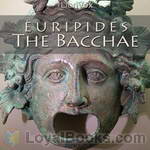 The Bacchae
The Bacchae
This tragedy is based on the mythological story of King Pentheus of Thebes and his mother Agave, and their punishment by the god Dionysus (who is Pentheus' cousin) for refusing to worship him. | |
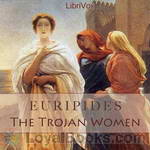 The Trojan Women
The Trojan Women
Euripides' play follows the fates of the women of Troy after their city has been sacked, their husbands killed, and as their remaining families are about to be taken away as slaves. However, it begins first with the gods Athena and Poseidon discussing ways to punish the Greek armies because they condoned Ajax the Lesser for dragging Cassandra away from Athena's temple. What follows shows how much the Trojan women have suffered as their grief is compounded when the Greeks dole out additional deaths and divide their shares of women. | |
 Medea
Medea
Euripides' tragedy focuses on the disintegration of the relationship between Jason, the hero who captured the Golden Fleece, and Medea, the sorceress who returned with him to Corinth and had two sons with him. As the play opens, Jason plans to marry the daughter of King Creon, and the lovesick Medea plots how to take her revenge. | |
By: Florence Holbrook (1860-1932) | |
|---|---|
 Dramatic Reader for Lower Grades
Dramatic Reader for Lower Grades
Despite the title's bland sounding name, this book is a charming collection of 16 plays for children. These little plays—well-known stories done into dialogue—were written for children who like to imagine themselves living with their favorite characters in forest, in palace, or in fairyland. Included are Cinderella, Robin Hood, William Tell, Hansel and Gretel and many more. | |
By: Frances Browne (1816-1879) | |
|---|---|
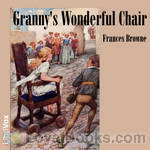 Granny's Wonderful Chair
Granny's Wonderful Chair
Her most famous work, Granny's Wonderful Chair, was published in 1856 and it is still in print to this day. It is a richly imaginative book of fairy stories and has been translated into many languages. This work, read as a child by Frances Hodgson Burnett, inspired the writings of Little Saint Elizabeth and Other Stories | |
By: Francis Beaumont (1584-1616) | |
|---|---|
 The Maid's Tragedy
The Maid's Tragedy
Beaumont and Fletcher's The Maid's Tragedy (first published 1619) is a sensational Jacobean sex tragedy. When gentleman soldier Melantius returns to Rhodes, he finds his dear friend Amintor is recently married - but not to his troth-plight love Aspatia (the maid of the title). Instead, the King has arranged a match between Amintor and Melantius' sister, the beautiful Evadne. On his wedding night, Amintor finds that his new wife has married him under false pretenses - and this unleashes a torrent of dire consequences, sexual, emotional, and ultimately political. | |
By: Frank Wedekind | |
|---|---|
 The Awakening of Spring
The Awakening of Spring
The Awakening of Spring is the German dramatist Frank Wedekind's first major play and a seminal work in the modern history of theatre. It is the source material for the contemporary rock musical Spring Awakening. The play criticises the sexually-oppressive culture of fin de siècle Germany and offers a vivid dramatisation of the erotic fantasies that it breeds. Due to the nature of its content, the play has often been banned. | |
 Pandora's Box
Pandora's Box
| |
 Earth Spirit
Earth Spirit
Earth Spirit (1895) (Erdgeist) is a play by the German dramatist Frank Wedekind. It forms the first part of his pairing of 'Lulu' plays (the second is Pandora's Box [1904]), both of which depict a society "riven by the demands of lust and greed". Together with Pandora's Box, Wedekind's play formed the basis for the silent film Pandora's Box (1929) starring Louise Brooks and the opera Lulu by Alban Berg in 1935 (premiered posthumously in 1937). The eponymous "earth spirit" of this play is Lulu, who Wedekind described as a woman "created to stir up great disaster... | |
By: Friedrich Schiller (1759-1805) | |
|---|---|
 Mary Stuart
Mary Stuart
Schiller's tragedy depicts the final days of Mary, Queen of Scots, who has been imprisoned by her cousin, Queen Elizabeth I, because of her potential claim on the English throne. The action of the play revolves around an attempt to rescue Mary from prison and Elizabeth's indecision over whether or not to have her executed. The 1801 translation is by Joseph Mellish, a friend of Schiller's. | |
 Love and Intrigue
Love and Intrigue
Ferdinand is an army major and son of President von Walter, a high-ranking noble in a German duke's court, while Luise Miller is the daughter of a middle-class musician. The couple fall in love with each other, but both their fathers tell them to end their affair. The President instead wants to expand his own influence by marrying Ferdinand to Lady Milford, the duke's mistress, but Ferdinand rebels against his father's plan and tries to persuade Luise to elope with him. | |
 Camp of Wallenstein
Camp of Wallenstein
This is the first play of Friedrich Schiller's Wallenstein Trilogy. Set in a Bohemian camp during the Thirty Years War, it introduces the major characters of the rest of the trilogy, like Albrecht von Wallenstein and Max Piccolomini, from their subordinates' point of view. | |
By: G. K. Chesterton (1874-1936) | |
|---|---|
 Magic: A Fantastic Comedy
Magic: A Fantastic Comedy
| |
By: George Arliss (1868-1946) | |
|---|---|
 Hamilton
Hamilton
One hundred years before the current hit musical Hamilton, Mary Hamlin wrote this historical play for Broadway with a big actor of the day, George Arliss, as co-author playing the leading role. It was made into a movie in 1931 with Arliss also playing the lead. - Summary by ToddHW Cast list: Alexander Hamilton: Tomas Peter General Schuyler: Amelia Chesley Thomas Jefferson: Wolfgang Bas James Monroe: Aleacia Messiah William B. Giles: Donald Gilmore Count Tallyrand: Delmar H Dolbier John Jay, Chief Justice: Joseph Tabler Zekiel: EJWiley James Reynolds: Chuck Williamson Colonel Lear: Campbell Schelp First Man: Nemo Second Man: Eva Davis Betsy Hamilton: Availle Angelica Church: TJ Burns Mrs... | |
By: George Bernard Shaw (1856-1950) | |
|---|---|
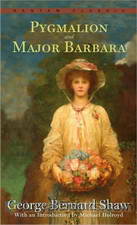 Pygmalion
Pygmalion
If you've watched and loved the delightful musical My Fair Lady, then you'd love to read the wonderful play on which it is based. Pygmalion by George Bernard Shaw is equally engrossing and as full of charm, wit and underlying pathos. First performed on stage in 1912, Pygmalion takes its title from the Greek myth of Pygmalion and Galatea. In the ancient story, a brilliant sculptor, Pygmalion falls in love with one of his own creations, a ravishingly beautiful sculpture whom he names Galatea. He propitiates Aphrodite, who grants his wish that his statue would come to life and that he could marry her... | |
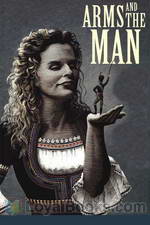 Arms and the Man
Arms and the Man
Arms and the Man is a comedy by George Bernard Shaw that takes place in 1885, during the Serbo-Bulgarian War. Raina Petkoff is engaged to the gallant Sergius Saranoff, hero of the recent Bulgarian victory over the Serbs. But she is distracted by the abrupt arrival of Captain Bluntschli, a Swiss mercenary who fought for the Serbian army. He takes refuge in her bedroom after the battle and although he is initially threatening, reveals that he carries chocolates instead of bullets. Will Raina marry the posturing Sergius or the chocolate cream soldier? Extra intrigue is provided by saucy servant girl Louka, her dour fiance Nicola, and Raina's hand-wringing parents. | |
 Mrs. Warren's Profession
Mrs. Warren's Profession
The story centers on the relationship between Mrs Kitty Warren, a rich woman, described by the author as "on the whole, a genial and fairly presentable old blackguard of a woman" and her daughter, Vivie. Mrs Warren is a middle-aged woman whose Cambridge-educated daughter, Vivie, is horrified to discover the morally questionable way her mother acquired her fortune. | |
 The Doctor's Dilemma
The Doctor's Dilemma
The Doctor's Dilemma is about Dr. Colenso Ridgeon, who has recently been knighted because of a miraculous new treatment he developed for tuberculosis. As his friends arrive to congratulate him on his success, he is visited by two figures who present him with a difficult decision. He has room for one more patient in his clinic; should he give it to Louis Dubedat, a brilliant but absolutely immoral artist, or Dr. Blenkinsop, a poor and rather ordinary physician who is a truly good person? Dr. Ridgeon's dilemma is heightened when he falls for Jennifer Dubedat, the artist's wife, who is innocent of her husband's profligacy. | |
 Candida
Candida
Candida, a comedy by playwright George Bernard Shaw, was first published in 1898, as part of his Plays Pleasant. The central characters are clergyman James Morell, his wife Candida and a youthful poet, Eugene Marchbanks, who tries to win Candida's affections. The play questions Victorian notions of love and marriage, asking what a woman really desires from her husband. The cleric is a Fabian Socialist, allowing Shaw—himself a Fabian—to weave political issues, current at the time, into the story. | |
 Major Barbara
Major Barbara
George Bernard Shaw's Major Barbara focuses on the family of aristocratic Lady Britomart Undershaft and her estranged husband Andrew, a millionaire armaments manufacturer. Their daughters Sarah and Barbara are both engaged to be married, and Lady Britomart decides to ask Andrew for monetary support. Barbara is a Major in the Salvation Army, and agrees to let her father visit the mission in the East End of London where she works. In exchange, she agrees to visit his munitions factory. The conflict between Barbara's philanthropic idealism and her father's hard-headed capitalism clash when he decides he wants to fund the Salvation Army... | |
 Don Juan in Hell
Don Juan in Hell
Don Juan in Hell is an excerpt (Act 3, Scene 2) from George Bernard Shaw’s Man and Superman. It is often performed as a stand-alone play. In it, three characters from Mozart’s Don Giovanni (Don Juan, Dona Ana, and the statue of the Commendatore, Dona Ana’s father) meet in Hell and, joined by the Devil, have a philosophical debate on a variety of subjects, including Heaven and Hell, men, women and marriage. In the end, they all decide where they will spend eternity. | |
 Heartbreak House
Heartbreak House
On the eve of World War I, Ellie Dunn, her father, and her fiancé are invited to one of Hesione Hushabye’s infamous dinner parties. Unfortunately, her fiancé is a scoundrel, her father’s a bumbling prig, and she’s actually in love with Hector, Hesione’s husband. This bold mix of farce and tragedy lampoons British society as it blithely sinks towards disaster. | |
 Caesar and Cleopatra
Caesar and Cleopatra
| |
 Misalliance
Misalliance
Misalliance, a 1910 play by George Bernard Shaw, is an ironic examination of the romantic entanglements of a varied group of people gathered at a wealthy man's country home on a summer weekend. Most of the romantic interest centers on the host's daughter, Hypatia Tarleton, a typical Shaw heroine who exemplifies his lifelong theory that in courtship, women are the relentless pursuers and men the apprehensively pursued. Hypatia is the daughter of newly-wealthy John Tarleton who made his fortune in the unglamorous but lucrative underwear business... | |
 Widowers' Houses
Widowers' Houses
This is one of three plays Shaw published as Plays Unpleasant in 1898; they were termed "unpleasant" because they were intended, not to entertain their audiences—as traditional Victorian theatre was expected to—but to raise awareness of social problems and to censure exploitation of the laboring class by the unproductive rich. In this play, Dr. Harry Trench becomes disillusioned when he discovers how his fiancee's father, Mr. Sartorius, makes his money. However, it is soon revealed that Trench's own income is far from untainted. | |